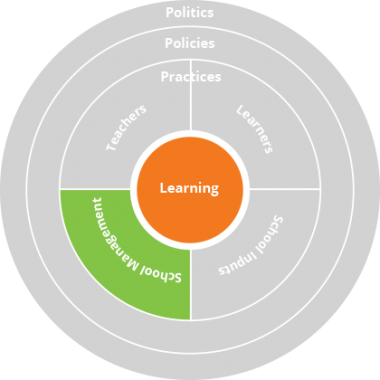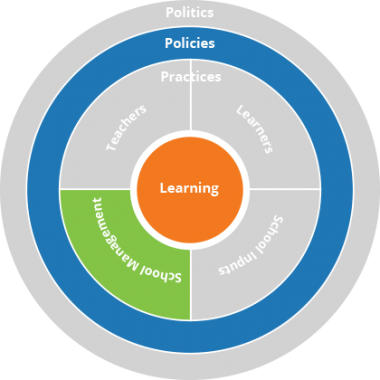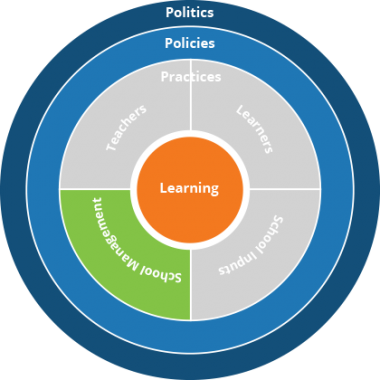School Management
It is essential to put learning for all children at the center, as we have now committed to do with the SDGs. But learning itself is not actionable. To improve learning, we must consider all the school- and student-level ingredients that make learning possible. We think of these as the “service delivery” or “practice” indicators. Learning depends on having capable school management that can bring all school-level elements together. That is, we need effective principals and school leaders, and the management structures that support teaching and learning in schools. Because there could be different needs and expectations across schools of different sizes, our framework captures both, the presence of core functions and the management practices of school principals, to capture both types of schools, those with a school principal and those without.
Practices
Managerial Skills
Core School Functions

School Management - Policies
But we can’t stop at practices, we need to go beyond the school-level factors to think about the broader system that influences what principals do. Principals are not acting in a vacuum. They are responding to the signals and incentives set by the system as a whole. For this, we look at the policies governing school management practices. When looking at core operational functions, the main policy requirement is that those core functions are clearly articulated and assigned. On the other hand, for principal skills, the policy levers are similar to those outlined for teacher skills - attraction, selection & deployment, support, and evaluation.
Practices
Managerial Skills
Core School Functions

School Management - Politics
Finally, there is the political and bureaucratic environment in which these policies are created and implemented. Key areas include financing, characteristics of bureaucracy, impartial decision-making, mandates and accountability, and the existence or not of time-bound, concrete national learning goals.
Politics
Practices
Managerial Skills
Core School Functions
